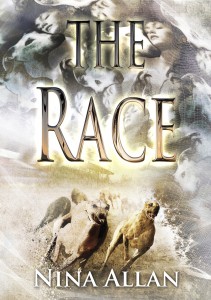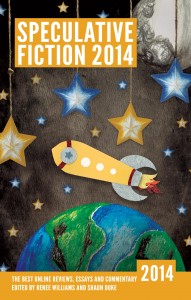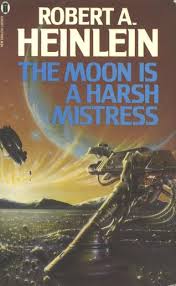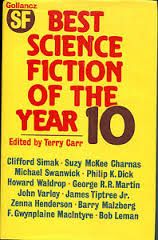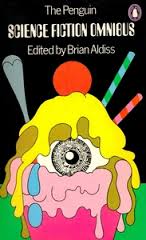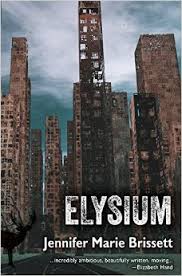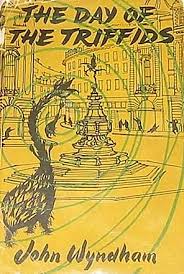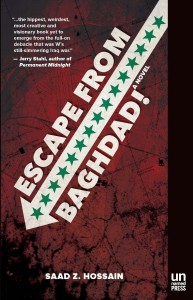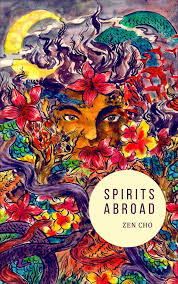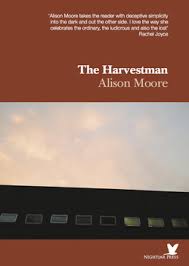Awards again, and after days of heady anticipation at what might be on there, I found myself scanning this year’s Booker Prize longlist as it was revealed yesterday with something approaching gloom. The more I looked the more disappointed I felt, and yet I found it difficult to articulate clearly why this might be. There was no book (well, perhaps one) I could point to that I felt shouldn’t be on the list. The line-up was, as some commentators have pointed out, one of the most encouraging in terms of diversity and gender parity that we have so far seen from the Booker. So why did the longlist leave me underwhelmed?
I could of course point to the list’s very low speculative fiction quotient as a source of dissatisfaction. There is only one novel of SFF interest in evidence, and that novel, Anna Smaill’s The Chimes, is one of the most disappointing I’ve read all year. Smaill is clearly a gifted and sensitive writer but as a novel The Chimes is as weak as water, a book that is completely overshadowed by its derivative second half. What with the exceptional novels of literary SF that could have been chosen instead – Alexis Wright’s The Swan Book, Laura Van Den Berg’s Find Me, Sara Taylor’s The Shore to name but three – I couldn’t help asking myself which of the judges had insisted on pushing The Chimes. One who loved the use of musical terminology and who by some fluke happened never to have read a single dystopia or YA novel? Some readers will know what it costs me to say this, but I would rather have seen Michel Faber’s The Book of Strange New Things on the Booker longlist than The Chimes. I couldn’t stand the Faber but I couldn’t mistake its ambition either. The Chimes is just bland.
[EDIT: someone has very kindly pointed me towards this fascinating review at Locus, in which Paul di Filippo (very convincingly I might add) compares Tom McCarthy’s Satin Island with PKD and particularly with Ballard, which reminds me that I really should have mentioned Tom McCarthy in this discussion. Booker junkies will well remember 2010, when McCarthy’s C made the shortlist and was hailed as a great modernist gamechanger for doing so. I remember C with great affection – the prose is superb, refined and clear and pure as Caithness crystal – and looking back on that 2010 shortlist now it seems the best book on there by a marathon’s distance and obviously should have won. Which brings me to the point about Tom McCarthy and the Booker, and the reason I subconsciously sidelined him in my thinking: Satin Island is clearly the sacrificial lamb on this longlist, the single curt nod to modernism the judges felt compelled to deliver or else fall foul of the usual criticisms about the Booker being hidebound and conservative. Satin Island stands proud from the overall tone and tenor of the shortlist as a whole like a pulled stitch in an elaborate tapestry. McCarthy will not be allowed to win any more than he was in 2010. I doubt he will even be allowed to progress to the shortlist this time. Still, the prompting towards di Philippo’s review has reminded me that I need to read Satin Island – in fact I’ve just ordered it – and here’s hoping I’ve been totally wrong and unfair in prejudging the judges!]
It would be wrong to put my disappointment down to SF-related disgruntlement alone though, especially given that the Booker could hardly be described as a prize that centres its attention on speculative fiction. The more I thought about it, the more I realised the main reason I felt disappointed was simply because the longlist was not the longlist I would have chosen. It was the same with the Clarke earlier this year. Plenty of people loved that list. I found it stolidly centrist, a representation not of the hardscrabble edgelands of the genre but of its commercial heartland. The progressive edge of that heartland, to be sure, but still nothing you could point to (except, ironically, the Faber!) as actively adventurous. I suppose my feelings about this particular Booker longlist are somewhat similar, compounded by the fact that the Booker submissions process is now so tortuous and preferential that we cannot even be sure which novels were allowed to be in contention in the first place. I know that Clarke Award chairman Tom Hunter has sometimes agonized over publishing the Clarke Award submissions list: does anyone really gain anything from seeing this list, or does it just open another big can of worms? I assure you, Tom, the transparency surrounding the Clarke’s award process is one of its strongest attributes and should not be compromised.
My disappointment with the Booker longlist list is certainly no more valid than anyone else’s excitement. It does, however, serve as a reminder that all juried prize selections are a compromise at some level, the sum of a small number of personal proclivities and a healthy dose of mutual horse-trading. It has often occurred to me that most prize selections are probably more instructive in retrospect, offering an overview of a literary scene whose trends and peculiarities become properly visible only with distance. Within the context of its given year, the Booker longlist is always going to look pretty random.
Which is all the more reason to get as many random snapshots as we possibly can. Rather than be depressed by a prize selection, how much more interesting and productive to use it is a starting point for exploration and discussion. As ordinary readers we don’t have the resources to award writers the lucrative prize monies that the Booker, for example, is able to offer. What we can do though is share our passion for the books and writers that excite us. Which is why I’m going to put my money where my mouth is and put up my own personal preferred Booker longlist just for the fun of it, as selected from those of the eligible novels I’ve read, those I have sampled and others that I’ve heard about and can’t wait to get stuck into.
1) A Little Life by Hanya Yanagihara. One from the official longlist, one I think will almost certainly make the shortlist, and one I definitely intend to read before the winner is announced. ‘I don’t think it was a book that anyone loved’, said Yanagihara in a recent interview of her first novel, The People in the Trees. Well, she’s wrong in at least one instance, because I did love that novel. I loved the form it took – fictional (auto)biographies are a favourite of mine, especially when combined with fictitious footnotes by a fictitious editor, and recounted by an unreliable narrator as superbly drawn as Yanagihara’s odious Norton Perina. For me The People in the Trees remains firmly on my favourites list for 2014. Yanagihara’s follow-up, A Little Life has had some of the most rapturous reader reviews I’ve seen in 2015 and with the excellence of Yanagihara’s writing in mind I can’t say I’m surprised. The premise doesn’t grab me nearly as much, I have to say – from where I’m sitting now, the novel seems to have a little too much of The Goldfinch about it for my liking, a baggy-monster-y, Franzen-y, conventional-narrative-y kind of a novel, the kind that all too often has me thinking: this is great to read but what’s the point?? My curiosity has the better of me, though, and I’m going to have to read it just so I can make up my own mind. We’ve already pre-ordered it, so watch this space.
2) A Brief History of Seven Killings by Marlon James. Another from the official longlist, and a book that grabbed my attention from the moment I first started reading about it, when was it, around March time? This takes me back to 2013, when the two books from the Booker longlist I felt most determined to read also happened to be the two longest: Eleanor Catton’s The Luminaries and Richard House’s (utterly superb and still under-appreciated) The Kills. I emerged enriched by the experience, though, and I’m hoping and expecting I will do so again this year.
3) The Wolf Border by Sarah Hall. As a reader, you can never predict with absolute certainly what books you’re going to love the most, and Sarah Hall’s The Wolf Border is the proof of that for me. As I become more and more enmeshed in my own weird little corner of literature, the more difficult I find it (much to my regret) to become ensnared by what might be described as a ‘straightforward’ linear narrative. Which makes it all the more magical when it does happen, and I can honestly say that I haven’t loved a book as much as I loved The Wolf Border in the way I loved The Wolf Border in quite some time. I identified strongly with the protagonist, I cared passionately about the outcome, I found the sense of place exquisite and hugely important, with Hall’s writing flawless to the point of invisibility. Hall missed out on a Baileys listing and her non-appearance on the Booker longlist is incomprehensible to me. Please read this book.
4) Find Me by Laura Van Den Berg. I have a review of this coming up in Strange Horizons, which I don’t want to pre-empt too much by saying: go out and buy this stunning debut novel right now!
5) Rawblood by Catriona Ward. So excited for this, as the grammatically mangled but colloquially compelling saying goes. It’s set on Dartmoor, it has intertwined narratives, it has a haunted house vibe. The opening pages are wonderful and I can’t wait to read it.
6) The Fishermen by Chigozie Obioma. Another book that caught my attention earlier in the year. Another one from the official longlist, too, so maybe that official longlist wasn’t so bad after all…
7) Green Glowing Skull by Gavin Corbett. I bought this on the strength of John Self’s review and the Kindle preview. I adored what I read and this may very well be next up on my TBR.
8) The Making of Zombie Wars by Alexandar Hemon. I love and admire everything Hemon writes, and his new novel features ideas for imaginary zombie movies. How could I not want this right now? Pre-ordered.
9) The Heart Goes Last by Margaret Atwood. I’m choosing Atwood for my ‘big hitter/previous shortlistee’ spot, because she’s a personal hero of mine, because this novel is full-blown SF (seriously, when are people going to stop saying that Atwood is a dabbler? Most of her output for over a decade has been science fiction) and because the word on the street is that it’s her best novel in years. Seriously excited for this.
10) The Lost Child by Caryl Phillips. An intertwining of narratives featuring Emily Bronte, the character of Heathcliff and a woman in the twentieth century struggling with issues of sanity, family and identity. I read reviews of this and loved the premise immediately. The prose is mouthwateringly good. TBR asap.
11) Book of Memory by Petina Gappah. A woman on death row in Harare writes an account of what brought her there. Petina Gappah is one hell of a writer, as evidenced by her first book, the story collection An Elegy for Easterly. This is her first novel and I can’t wait.
12) The Book of Numbers by Joshua Cohen. This novel fills my ‘devil’s advocate’ slot (or the Wil[Sel]f Slot as we call it in this house – perhaps we should start calling it the Tom slot instead…) Cohen’s novel has divided opinion pretty much equally between those who say it’s the funniest, cleverest book of the year and those who say that everyone in it is a dick and that the author must be a dick to have written it, and a pretentious dick, too. Certainly everyone in the book seems to be an absolute arsehole, but since when has that put me off reading anything? I love metafiction, and I can’t help feeling intrigued and attracted by what Cohen is doing here. In spite of myself, I want to read it. Only time will tell if I come to regret that desire.
13) The Weightless World by Anthony Trevelyan. Coming in on the indie ticket we have a novel from Galley Beggar, who brought us Eimear McBride’s multi-award-winning A Girl is a Half-formed Thing in 2013. Galley Beggar have published some remarkable books already, and I have heard such wonderful things about Trevelyan’s debut. It comes with a fantastic speculative conceit, too.
So that’s the fantasy longlist out of my system. And my on-the-spot predictions for the actual Booker shortlist? Based purely on personal hunches, I’m going with:
A Little Life
Lila
The Year of the Runaways
The Fishermen
The Illuminations
The Green Road
We’ll find out what the judges thought on September 15th.
